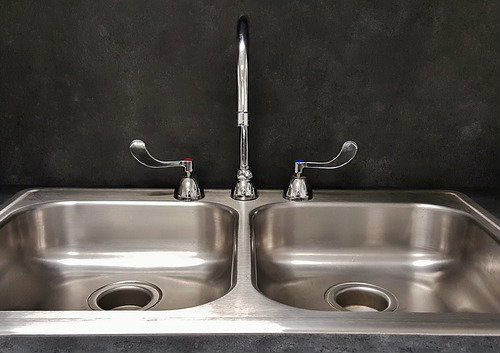
You’ve likely heard that you should never dump grease down your sink. Yet, unfortunately most people still do it. It’s tempting and it’s easy, but putting any fat, grease or oil down your drain will wreak havoc on your pipes and sewer.
Not convinced?
Let us break it down for you so you can know exactly why anyone should stop this harmful practice.
How You Damage Your Home’s Pipes with Grease Down the Drains
The problem lies in what happens after your wastewater is flushed from your pipes and delivered to the sewers: the grease and oil mix with other chemicals and form nasty blockages.
These blockages can eventually harden and will lead to an overflow of the sanitary sewer. You will then find yourself with a raw sewage backup in your neighborhood, streets, lawn, or worse, into your home.
Want to avoid BIG financial and environmental concerns?
Never, ever put fats, oils, or grease down your drains.
Signs of a Blockage
- Bad odors
- Gurgling sound
- Slow draining water
- Sink back ups
Preventative Maintenance for Your Sink Drains
Obviously, the best prevention is to avoid putting these items in your drains in the first place.
But some other precautions include pouring bleach down your drains once a week to keep pipes clean. In addition, you could periodically fill your sink up with hot water and let it drain or just running hot water down the drain after each use.
A good practice is to keep a container nearby and in sight to remind you to scrape your debris from oil, fats, or grease into that rather than down your drain.
What to Do If You Forget About Grease Down Your Drain
Did you accidentally put one of the unholy trio down your sink?
It’s okay, but you’ll need to act FAST. The first step is to pour very hot water down the drain followed by a combo of vinegar and baking soda. These ingredients are all natural and won’t cause further damage to your home’s precious pipe system.
Still having problems breaking the clog up?
Try putting a drain snake down the sink. You can even rent one at the major hardware stores!
Whatever you do, avoid using liquid toilet clog crushers EXCEPT in cases of a true emergency. In this case, calling a certified plumbing professional is your best bet.
How to Correctly Dispose of Grease and Oils
Now that you know all the ways to prevent this plumbing tragedy, we want to give you some tips for the proper discarding of these nasty fats, oils, and greases.
- Collect these items in a glass (never plastic) sealed container. Empty pickle jars with their lids work great!
- Scrape off all excess food and debris into your trash (NOT the garbage disposal!)
Just make sure you avoid rinsing oil and grease off with hot water.
Once your hot oil has cooled down in the glass container it’s safe to put in the trash. However, you have another option than just tossing it out with the garbage.
Did you know that you can actually recycle your cooking grease?
Check out this site for some great tips on preparing your oil for recycle and then use their recycle center locator in step #3 to find one nearest to you.
Finally, for all of you who are culinary experts, you might already be doing this: but keeping some fats rendered from cooking meats is great for use the next day. Just collect in a jar, store in the fridge, and cook your potatoes in them for extra flavor!
We hope these tips were helpful and as always, we’re happy to share resources for a happier and healthier home. If you think it’s time for your annual home inspection or would like a pair of professional eyes to check your home’s condition, we can help!
Schedule your inspection in minutes with our online scheduling tool!
Request an Inspection Online
This is the best way to start the process, ensuring a text, email, or voicemail doesn’t get lost in today’s digital traffic. For more complex projects, feel free to contact us and we will respond quickly regarding your needs.
Request An InspectionYou Can Trust Us
Having an unbiased expert in your corner is an incredibly valuable asset.
Learn Why